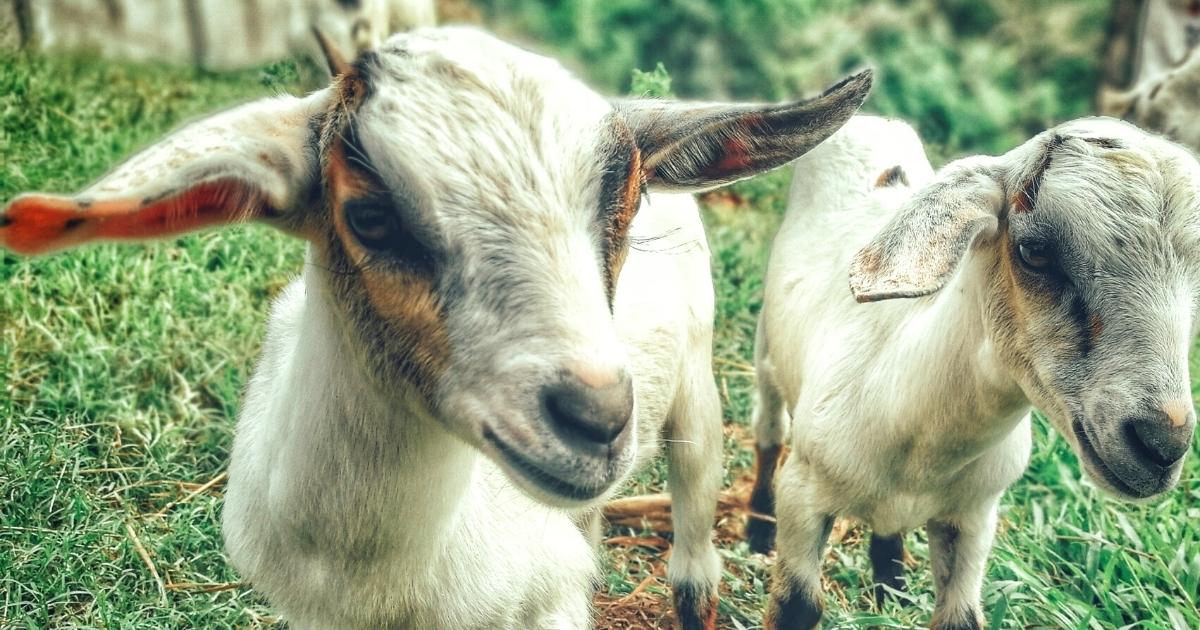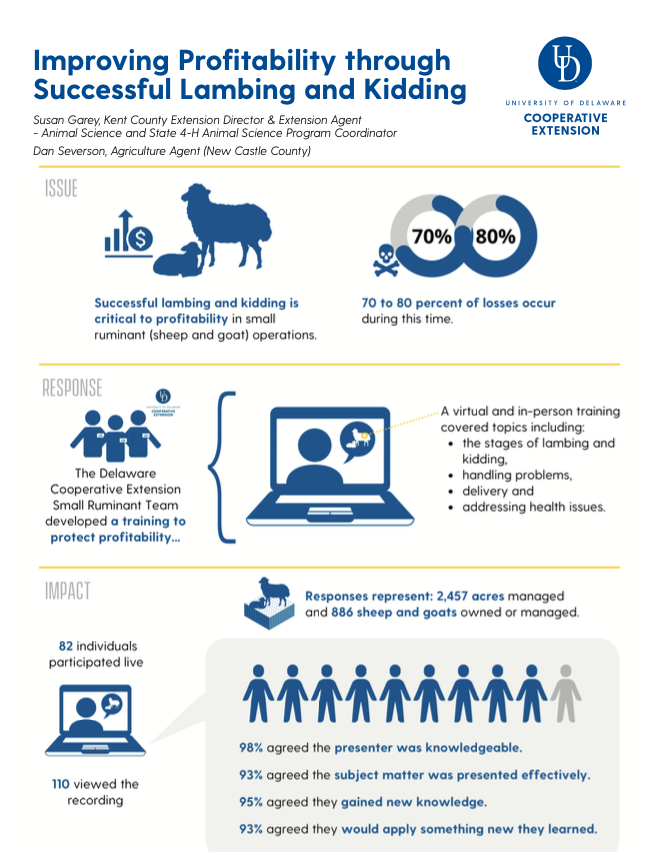
Improving Profitability through Successful Lambing and Kidding (2021)

Improving Profitability through Successful Lambing and Kidding

ISSUE
Successful lambing and kidding is critical to the profitability of sheep and goat operations. The lambing and kidding time period poses one of the biggest risks to profitability in the annual production cycle. For small ruminant producers, 70 to 80 percent of death losses occur during these two weeks. According to Purina Mills sheep specialist Mark Johnson, “Success or failure during lambing season is the largest single factor affecting the profitability of the sheep flock.
RESPONSE
To increase producers’ chances of success and profitability of their livestock operation, the Delaware Cooperative Extension Small Ruminant Team recognized the need for additional education. The team designed and offered a virtual and in-person lambing and kidding webinar with guest speaker Kevin Pelzer, DVM and large animal clinician from the Virginia-Maryland College of Veterinary Medicine and Virginia Tech. Information covered in the webinar included the stages of lambing and kidding, how to handle problems, how to deliver healthy lambs and kids, and health Issues during gestation and after lambing or kidding.
IMPACT
In total, 82 individuals participated live and 110 viewed the webinar recording. A Qualtrics survey was distributed to individuals who participated in the webinar by either method and 42 surveys were returned. The responses represented a combined 2,457 acres managed and 886 sheep and goats owned or managed by workshop participants. Results indicated that:
- 93 percent agreed or strongly agreed that the subject matter was presented effectively;
- 83 percent agreed or strongly agreed that the duration of the webinar was sufficient for the material covered;
- 98 percent agreed or strongly agreed that the presenter was knowledgeable on the subject matter;
- 95 percent agreed or strongly agreed that they gained new knowledge as a result of the lambing and kidding webinar; and
- 93 percent agreed or strongly agreed that they would apply something new they learned in the webinar.
Only two out of 42 participants (four percent) responded they had any technical difficulties in participating in the webinar virtually. Both indicated that it was due to their poor internet connections. The majority of webinar participants (64 percent) were from our region (Delaware and Maryland) with the rest of the participants from other states; three participants classified themselves as international. A 4-H club also watched the webinar as a group as part of their club meeting. Participants found the workshop extremely useful.
“The information was relayed in a very basic, easy to understand way. I learned a lot and glad I participated. I would definitely take another webinar like this,” shared one attendee.
The workshop’s lessons paid off for participants:
- “My husband and I have already used multiple things we learned, as we’re right in the middle of lambing over here,” commented another participant.
- “Thanks to the information I gained, I was able to effectively assist with a difficult birth and save a very nice lamb and her mom,” added a final attendee.
Recognition
Dr. Kwame Matthews, Small Ruminant Specialist Delaware State University; Dr. Kevin Pelzer DVM, Virginia Maryland College of Veterinary Medicine
